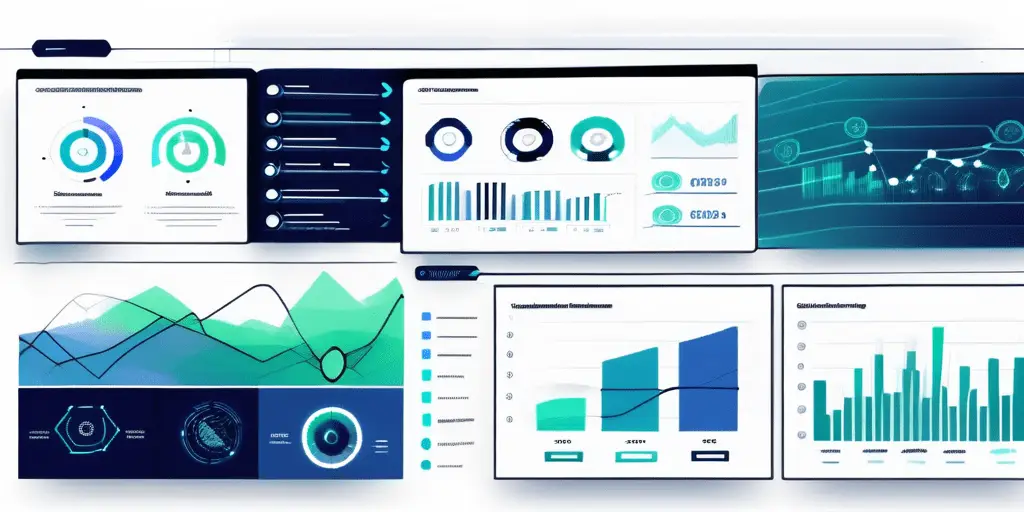Data privacy and security have become critical concerns for organizations in today’s digital age. With the implementation of regulations like the California Consumer Privacy Act (CCPA), companies must ensure that they comply with the law to protect their customers’ personal information. One effective way to assess an organization’s data protection measures is by performing penetration testing, also known as pen testing. In this article, we will explore the connection between CCPA compliance and pen testing and the importance of incorporating pen testing in compliance strategies.
Understanding CCPA Compliance
The California Consumer Privacy Act (CCPA) is a state-level data privacy law that was enacted to enhance data protection for California residents. It gives individuals more control over their personal information and requires businesses to be transparent about collecting, using, and sharing consumer data.
The key elements of CCPA include the right to know what personal information is being collected, the right to opt-out of the sale of personal information, and the right to delete data upon request. By enforcing stringent regulations, CCPA aims to protect consumers from unauthorized data breaches and privacy violations.
Key Elements of CCPA
The CCPA outlines several critical elements that organizations must address to achieve compliance. These elements include:
- Data collection and transparency: Businesses must inform consumers about the categories of personal information they collect and the purposes for which it will be used.
- Consumer rights: CCPA grants consumers the right to access and request deletion of their personal information. Organizations must also provide consumers with the option to opt-out of the sale of their data.
- Service provider obligations: Organizations must ensure that their service providers adhere to CCPA requirements when handling consumer data.
- Security safeguards: Businesses are expected to implement reasonable security measures to protect consumer data from unauthorized access, disclosure, or loss.
Importance of CCPA Compliance
Complying with CCPA is not just about avoiding penalties and legal consequences but also about building and maintaining customer trust. Organizations can foster stronger relationships with their customers by respecting consumer privacy rights and implementing robust data protection measures.
CCPA compliance helps organizations demonstrate their commitment to safeguarding consumer data, which can positively impact their brand reputation in an era when data breaches and privacy incidents are becoming increasingly prevalent. It also positions organizations as ethical, trustworthy entities that prioritize privacy and security.
Steps Towards CCPA Compliance
Businesses need to take proactive steps to ensure CCPA compliance. Here are some essential measures:
- Perform a comprehensive data audit: Identify what personal information is collected, where it is stored, and with whom it is shared.
- Update privacy policies: Revise privacy policies to meet CCPA requirements, including proper disclosure of data collection and usage practices.
- Implement data access and deletion mechanisms: Develop processes to handle consumer requests for accessing or deleting their personal information.
- Train employees: Educate employees on CCPA compliance obligations, emphasizing the importance of data security and privacy.
- Monitor and adapt: Continuously assess and update data protection measures to align with evolving CCPA regulations and industry best practices.
Ensuring CCPA compliance is an ongoing effort that requires organizations to stay up-to-date with the latest developments in data privacy laws and regulations. By doing so, businesses can maintain a strong position in the market and build trust with their customers.
Furthermore, CCPA compliance can have a positive impact on the overall operational efficiency of organizations. When businesses clearly understand the personal information they collect and how it is used, they can streamline their data management processes and reduce the risk of data breaches or mishandling.
Another benefit of CCPA compliance is the potential for increased customer loyalty and satisfaction. When consumers know that their personal information is being handled responsibly and transparently, they are more likely to trust and engage with the organization. This can lead to repeat business, positive word-of-mouth recommendations, and a stronger brand reputation.
CCPA compliance also encourages organizations to adopt a privacy-by-design approach. This means that privacy considerations are integrated into the design and development of products and services from the outset. By prioritizing privacy and data protection, organizations can minimize the risk of non-compliance and ensure that consumer privacy rights are respected at every stage.
Overall, CCPA compliance is not just a legal requirement; it is a strategic opportunity for businesses to differentiate themselves in the market and build trust with their customers. By taking proactive steps towards compliance and prioritizing consumer privacy, organizations can navigate the evolving landscape of data privacy laws and regulations while maintaining a competitive edge.
Introduction to Penetration Testing
Penetration testing, often referred to as pen testing, is a proactive cybersecurity practice that involves authorized simulated attacks on an organization’s network, systems, or applications. The primary objective of pen testing is to identify vulnerabilities and weaknesses in the organization’s security defenses before malicious actors exploit them.

A successful penetration test provides organizations with valuable insights into their security posture, allowing them to make informed decisions to strengthen their defenses and mitigate potential risks.
Penetration testing is a critical component of a comprehensive cybersecurity strategy. It helps organizations stay one step ahead of cyber threats by actively assessing their security measures and identifying areas for improvement.
Role of Penetration Testing in Cybersecurity
Penetration testing plays a crucial role in a comprehensive cybersecurity strategy. Here are some key reasons why pen testing is an indispensable practice:
- Vulnerability assessment: By actively simulating real-world attack scenarios, pen testing can identify vulnerabilities that might otherwise go unnoticed. This includes vulnerabilities in network infrastructure, web applications, wireless networks, and even social engineering attacks.
- Risk management: Pen testing helps organizations prioritize security measures by identifying high-priority vulnerabilities and potential impacts of a successful attack. By understanding the risks they face, organizations can allocate resources effectively to mitigate those risks.
- Compliance requirements: Many regulatory frameworks, including CCPA, require periodic pen testing to assess and validate the effectiveness of an organization’s security controls. Pen testing helps organizations meet these compliance requirements and demonstrate their commitment to protecting sensitive data.
- Incident response preparation: Pen testing can help organizations prepare for potential security incidents by uncovering weaknesses in their incident response processes and capabilities. By simulating attacks, organizations can identify gaps in their incident response plans and make necessary improvements.
By conducting regular penetration testing, organizations can continuously evaluate and enhance their security posture, ensuring that they are well-prepared to defend against evolving cyber threats.
Different Types of Penetration Testing
There are various types of pen testing, each serving a specific purpose within an organization’s cybersecurity strategy. These types include:
- Network penetration testing: Evaluates the security of an organization’s network infrastructure to identify vulnerabilities that could be exploited by unauthorized individuals. This includes assessing firewalls, routers, switches, and other network devices.
- Web application penetration testing: Focuses on assessing the security of web applications, identifying weaknesses that could be leveraged for unauthorized access or data breaches. This includes testing for common vulnerabilities such as SQL injection, cross-site scripting (XSS), and insecure direct object references.
- Wireless penetration testing: Assesses the security of wireless networks, including Wi-Fi networks, to identify potential weaknesses and prevent unauthorized access. This includes testing for weak encryption, misconfigured access points, and rogue devices.
- Social engineering testing: Involves testing an organization’s susceptibility to social engineering attacks, such as phishing or impersonation attempts. This includes assessing employee awareness, training effectiveness, and response to social engineering tactics.
Each type of penetration testing serves a specific purpose and helps organizations identify vulnerabilities in different areas of their cybersecurity infrastructure. By conducting a combination of these tests, organizations can ensure a comprehensive assessment of their security measures.
CCPA Compliance and Penetration Testing: The Connection
CCPA compliance and penetration testing are interconnected practices that can help organizations ensure the security and integrity of consumer data. In today’s digital landscape, where data breaches and privacy incidents are becoming increasingly common, it is crucial for organizations to prioritize the protection of consumer information. Penetration testing plays a vital role in supporting CCPA compliance by identifying potential vulnerabilities and weaknesses in an organization’s security controls.
How Pen Testing Supports CCPA Compliance
Penetration testing provides organizations with valuable insights into their security posture. By simulating real-world cyber attacks, pen testers can uncover vulnerabilities that may expose consumer data to unauthorized access or disclosure. This proactive approach allows organizations to identify and address any weaknesses in their data protection measures, align them with CCPA requirements, and implement necessary security enhancements. Regular pen testing helps organizations stay one step ahead of potential threats, ensuring that consumer data remains secure and compliant with CCPA regulations.
During a penetration test, ethical hackers use a combination of manual and automated techniques to identify vulnerabilities in an organization’s systems, networks, and applications. They attempt to exploit these vulnerabilities to gain unauthorized access to sensitive data. By conducting these tests, organizations can gain a comprehensive understanding of their security strengths and weaknesses, enabling them to make informed decisions about their data protection strategies.
Risks of Non-Compliance
The consequences of non-compliance with CCPA can be severe for organizations. Apart from potential penalties and fines, non-compliant organizations face the risk of damaging their reputation and losing customer trust. In today’s data-driven world, consumers are increasingly concerned about the privacy and security of their personal information. A data breach or privacy incident can have far-reaching consequences, leading to financial losses, legal repercussions, and potential legal actions against the organization.
Penetration testing plays a crucial role in mitigating the risks associated with non-compliance. By identifying vulnerabilities and weaknesses in an organization’s security controls, pen testers can help organizations address these issues before they are exploited by malicious actors. Regular pen testing provides organizations with the opportunity to strengthen their security measures, reduce the risk of non-compliance, and safeguard consumer data.
Furthermore, penetration testing can also help organizations demonstrate their commitment to data security and compliance. By conducting regular tests and implementing necessary security enhancements, organizations can showcase their proactive approach to protecting consumer information. This can enhance their reputation, build trust with customers, and differentiate them from competitors who may not prioritize data security to the same extent.
Implementing Pen Testing for CCPA Compliance
Integrating penetration testing into CCPA compliance strategies is crucial for organizations aiming to protect consumer data. By conducting regular pen tests, organizations can identify vulnerabilities and strengthen their security measures. Here are some best practices for effective pen testing:

Best Practices for Effective Pen Testing
1. Define clear objectives: Clearly define the goals and scope of the pen test to ensure that all relevant systems and applications are evaluated. This will help in identifying potential weaknesses and areas that require improvement.
2. Engage qualified professionals: Pen testing should be performed by experienced and certified cybersecurity professionals who possess the technical expertise to identify vulnerabilities accurately. Their knowledge and skills are essential in conducting thorough assessments and providing valuable insights.
3. Follow a systematic approach: Penetration testing should follow a structured methodology, including reconnaissance, vulnerability scanning, exploitation, and reporting. This systematic approach ensures that all aspects of the system are thoroughly tested, leaving no room for oversight.
4. Document findings and recommendations: Penetration test reports should include detailed findings, prioritize vulnerabilities, and provide clear recommendations for remediation. This documentation serves as a valuable resource for organizations to address identified weaknesses and improve their overall security posture.
5. Regularly revisit pen testing: Pen testing should be conducted periodically, particularly after significant changes to the organization’s systems, networks, or applications. This ensures that any new vulnerabilities introduced are identified and mitigated promptly, maintaining a robust security framework.
Overcoming Challenges in Pen Testing
Penetration testing can present some challenges that organizations need to address:
- Resource limitations: Organizations may face constraints in terms of time, budget, or qualified personnel dedicated to pen testing. It is crucial to allocate sufficient resources to ensure comprehensive testing and analysis.
- False positives/negatives: Pen test results may include false positives or negatives, requiring skilled analysis to distinguish actual vulnerabilities. This emphasizes the need for experienced professionals who can accurately interpret the test results.
- Impact on production systems: Pen testing may temporarily impact system availability or performance, requiring careful planning and coordination. It is essential to schedule tests during off-peak hours and communicate with relevant stakeholders to minimize disruptions.
- Testing of third-party vendors: Organizations must extend pen testing to third-party vendors who handle consumer data to ensure end-to-end security. This includes assessing the security measures implemented by vendors and conducting regular audits to identify any potential risks.
By addressing these challenges and following best practices, organizations can effectively implement pen testing as part of their CCPA compliance strategy. This proactive approach helps protect consumer data and maintain trust in an increasingly digital world.
Future of CCPA Compliance and Pen Testing
The landscape of data security and privacy is constantly evolving, with cyber threats becoming more sophisticated. As organizations strive to maintain CCPA compliance and protect consumer data, they must stay ahead of emerging trends and adapt their compliance and testing strategies.

One of the key factors driving the future of CCPA compliance and pen testing is the evolving cybersecurity threats. With each passing day, cybercriminals are finding new ways to exploit vulnerabilities and gain unauthorized access to sensitive data. As a result, organizations must continually improve and update their security controls to mitigate the risks associated with these evolving threats.
Emerging technologies, such as artificial intelligence and the Internet of Things (IoT), bring about new challenges for organizations in terms of data security and privacy. These technologies provide innovative opportunities for businesses but also introduce potential vulnerabilities that cybercriminals can exploit. Therefore, organizations need to adapt their compliance and testing strategies to address these challenges effectively.
Evolving Cybersecurity Threats
The future will likely see an increase in cyber threats, including new techniques and attack vectors that exploit emerging technologies. Cybercriminals are constantly developing sophisticated methods to breach security systems and gain unauthorized access to sensitive data. From advanced phishing attacks to ransomware and zero-day exploits, organizations face a wide range of threats that require proactive measures to counteract.
As the use of cloud computing, mobile devices, and IoT devices continues to grow, so does the attack surface for cybercriminals. Organizations must not only protect their traditional IT infrastructure but also secure their cloud-based resources, mobile applications, and interconnected devices. This requires a comprehensive approach to cybersecurity that encompasses not only network security but also application security, data encryption, and user awareness training.
Adapting Compliance and Testing Strategies
Compliance and testing strategies need to adapt to address new challenges. Organizations should regularly evaluate their compliance programs, review best practices, and adjust their pen testing approaches to align with the evolving regulatory landscape and emerging cyber threats.
One aspect that organizations should consider is the continuous monitoring of their systems and networks. Traditional compliance assessments and pen tests are often conducted periodically, leaving gaps between assessments where vulnerabilities can go undetected. By implementing continuous monitoring solutions, organizations can detect and respond to potential threats in real-time, reducing the risk of data breaches and non-compliance.
Another important consideration is the integration of automated tools and technologies into the compliance and testing processes. With the increasing complexity and scale of IT environments, manual testing alone may not be sufficient to identify all vulnerabilities and ensure compliance. By leveraging automated scanning tools, organizations can streamline their testing processes, identify vulnerabilities more efficiently, and reduce the time and effort required for compliance assessments.
In conclusion, CCPA compliance and penetration testing are critical components of an effective data protection strategy. By understanding and adhering to CCPA requirements and conducting regular pen testing, organizations can proactively safeguard consumer data, maintain compliance, and demonstrate their commitment to data privacy and security. However, staying vigilant and adapting to the evolving cybersecurity landscape is essential to address emerging threats and challenges effectively.
As the digital landscape continues evolving, so does the importance of robust cybersecurity measures. Blue Goat Cyber, a Veteran-Owned business, is at the forefront of providing specialized B2B cybersecurity services. Whether you’re navigating the complexities of CCPA compliance, medical device cybersecurity, HIPAA, FDA Compliance, SOC 2, or PCI penetration testing, our expert team is dedicated to securing your business against attackers. Contact us today for cybersecurity help and partner with a team passionate about protecting your operations and data.


